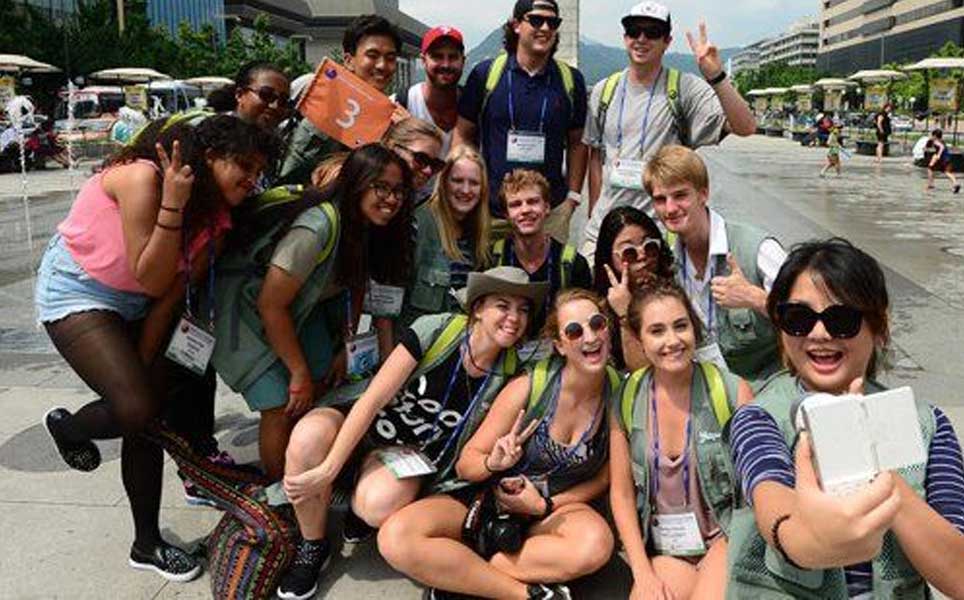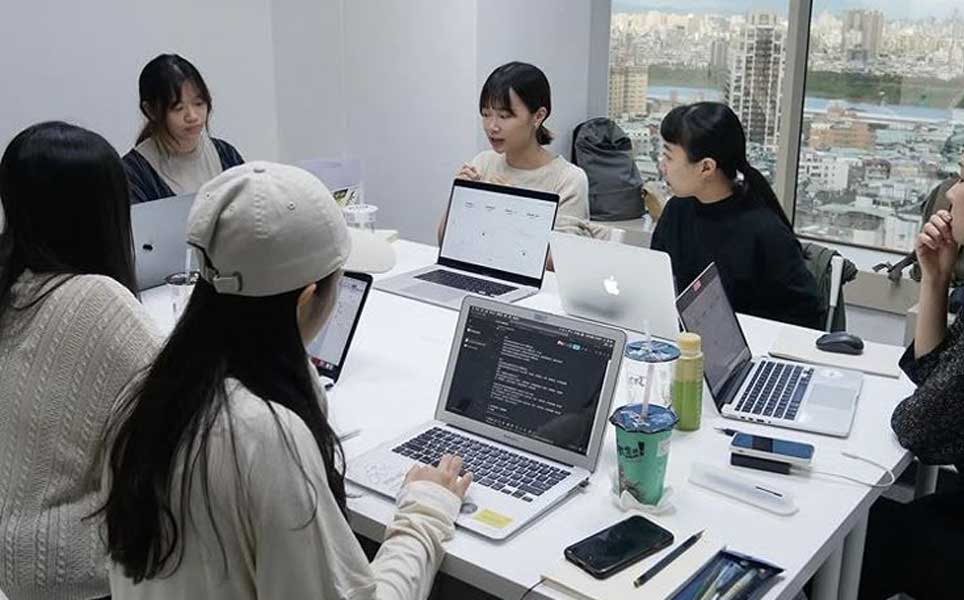You’ve landed the interview. The offer’s in your inbox. Living and working in South Korea suddenly feels real. But before you say “yes,” you deserve to know what you’re really walking into. Because while Korea offers incredible work opportunities for global talent, the rules—and loopholes—can be very different here. This is a complete guide into working in South Korea as a foreigner your recruiter won’t send you, but you’ll wish you had.
The Pros & Cons of Working in South Korea as a Foreigner: What You Should Know First
South Korea has long captured the imagination of expats and remote workers alike. K-pop’s global wave, Seoul’s rising startup culture, and sleek lifestyle perks—from late-night convenience store ramen to scenic weekend hikes—make it an attractive place to build your life and career.
But once you step into the work culture as a foreigner in South Korea, a different picture emerges. It’s layered, sometimes contradictory, and incredibly dependent on what industry you enter.

This editorial walks you through the real pros and cons of working in South Korea as a foreigner, based on current labor laws, visa-linked rights, and the everyday realities many workers encounter.
Think of this as your behind-the-scenes pass—ideal for anyone planning to stay beyond the tourist visa.
PROS: Why Working in South Korea Can Be Rewarding
A Global Job Market That’s Opening Up
Over the past decade, South Korea has widened its doors to global talent. Sectors like education, IT, design, game development, and engineering actively seek non-Korean professionals.
If you’re qualified and culturally adaptable, Korea can be a fantastic place to gain unique professional experience. The government has introduced policies to support foreign hires and has discussed—but not yet widely implemented—tax benefits for global talent.

Insider Tip: The E-7 visa (for skilled workers) now covers a wider range of professions than ever, including tech, media, and content creation—though you’ll need a sponsoring employer and a solid resume.
Cultural Appeal Meets Career Building
For many, Korea isn’t just a workplace, it’s a lifestyle. Access to efficient public transport, quality healthcare, and one of the world’s lowest crime rates makes daily life convenient and safe.
Combine that with weekend café-hopping in Itaewon, temple escapes in Gyeongju, or night markets in Busan, and it’s easy to see why so many foreigners extend their contracts year after year.

Plus, there’s real value in gaining Korean-based work experience if you plan to build an international career.
Workers’ Rights (on Paper) Are Stronger Than You Might Think
Under Korean labor law, foreign workers with valid contracts are—in principle—entitled to the same protections as Korean citizens. That includes:
- Severance pay (after one full year of employment)
- Paid vacation (guaranteed under the Labor Standards Act after one year)
- Compensation for working on public holidays (only if stipulated in your contract or by company policy).
- Health insurance and pension coverage
- Industrial accident compensation insurance
In certain cases, even undocumented workers may be eligible to claim unpaid wages or industrial accident compensation, as upheld in a 1995 Supreme Court ruling. However, they may still face immigration consequences, including possible deportation—even if they win the case.
CONS: Why You Need to Read the Fine Print (And Between the Lines)
Small Companies = Small Protection
One of the biggest legal blind spots? Businesses with fewer than five permanent employees are exempt from many clauses in the Labor Standards Act. That means no obligation to provide:
- Overtime pay
- Paid annual leave
- Legally enforced working hour limits
These small-scale jobs are especially common in ESL schools (hagwons), creative agencies, and startups.

Many foreign workers sign contracts with excitement— only to later discover that businesses with fewer than five regular employees are legally exempt from many key protections, including paid leave, overtime, and standard working hour caps.
REMEMBER: If you’re being offered a job at a company with less than five employees, ask for detailed written conditions. If it’s vague or verbal, walk away.
“Freelancer” Status Can Mean Zero Safety Net
Some companies avoid employee obligations by calling foreign hires “contractors” or “freelancers.” While the job may look like full-time—regular hours, office presence, defined tasks—you’re technically on your own.

In many cases, freelancers and independent contractors aren’t entitled to severance, pensions, or paid leave. However, if your work closely resembles that of full-time employee—consistent hours, supervision, and no other clients—you may be eligible for reclassification and retroactive benefits under Korean labor law.
This happened in the high-profile case of weathercaster Oh Yoanna, who experienced workplace bullying but was denied labor protection due to her freelancer status. The government ruled she wasn’t a full employee, despite exclusive work for a single company.

Caution: If your duties mirror those of a regular employee—such as fixed hours, singular clients, and supervised work—you may be eligible for reclassification under the incoming ‘presumed worker’ legal framework proposed by the Lee Jae Myung administration. Though still pending legislation, it signals growing protection for disguised workers.
Enforcement Can Be Patchy
While the law looks good on paper, enforcement can be inconsistent, especially if your employer assumes you won’t complain. Many foreign workers report:
- Delayed or unpaid wages
- Denied health insurance enrollment
- Verbal agreements with no written contracts
- Illegal “fines” for breaking a contract early
That’s where knowing how to file a labor complaint becomes crucial.
What To Do If You’re Not Getting Paid
If you’ve worked in Korea and your employer hasn’t paid you, don’t panic—but don’t wait, either. Here’s what to do:
- File a complaint at the Ministry of Employment and Labor
Visit your local Labor Office or file online at https://minwon.moel.go.kr - Be ready to attend interviews
Both parties (you and the employer) will be called for interviews within 25 days. - If your case is valid, the ministry can order payment
If the Ministry of Employment and Labor finds your complaint valid and orders your employer to pay, refusal to comply can lead to criminal penalties—including fines up to ₩30 million (~$22,000) or potential imprisonment.
IMPORTANT: You must file within two years of leaving the job.
According to Ministry of Employment and Labor data from mid-2024, nearly 15,000 foreign workers were affected by a cumulative ₩69.9 billion in unpaid wages between January and July—a statistic that underscores the importance of labor enforcement mechanisms. The problem is real—but so are the tools to fight back.
Quick Tips: Adapting to Korean Work Culture
- Respect the hierarchy. Titles, age, and rank matter—always greet senior staff first and use polite language.
- Show up early, not just on time. Punctuality is a form of respect, and being late—even by a few minutes—can reflect poorly.
- Dress sharply. Even in casual offices, neat and professional appearance goes a long way.
- Prepare for 회식 (company dinners). These after-hours gatherings are part of team bonding. You don’t have to drink, but your presence is usually expected.
- Follow group flow. In meetings, deference and consensus often matter more than voicing bold individual opinions.
- Watch and learn. Observing how colleagues interact will teach you more than any manual or orientation packet.
Adapting may feel like decoding an unwritten rulebook—but it’s doable. And over time, the formality turns into familiarity.
What’s Changing Under the New Administration
With President Lee Jae Myung’s labor-forward campaign promises, foreigner working conditions for in South Korea may shift over the next few years. His administration pledges:
- Gradual expansion of labor law protections to businesses with fewer than five employees
- Legal protection for disguised freelancers under a new “presumed employee” framework
- Creation of a basic workplace rights law that guarantees non-discrimination, anti-harassment protections, and safe working conditions for all—regardless of visa status
- Labor courts to resolve disputes faster, and full compensation guarantees for unpaid wages
While these reforms are still in early stages, they signal that foreign workers are finally part of Korea’s labor policy conversations.
So, Should You Work in Korea?
Absolutely—but with eyes wide open. Working in South Korea can be exciting, fulfilling, and career-building. But it’s also full of legal gray zones and cultural surprises that no recruiter will spell out in the job post.
So before you say yes, ask these three questions:
- Does this job offer real employee protection, or am I a contractor in disguise?
- Is the company large enough for labor laws to apply?
- Can I access health insurance, severance, and paid leave through this position?
If the answers check out—and the job excites you—go for it. Just bring your curiosity, your contract in writing, and your knowledge of the system.
Because as a foreigner working in South Korea, it isn’t just about living in the country. Instead, it’s about knowing your rights and building a life you’ll be proud of.
Related Posts
3,993 total views, 6 views today

















